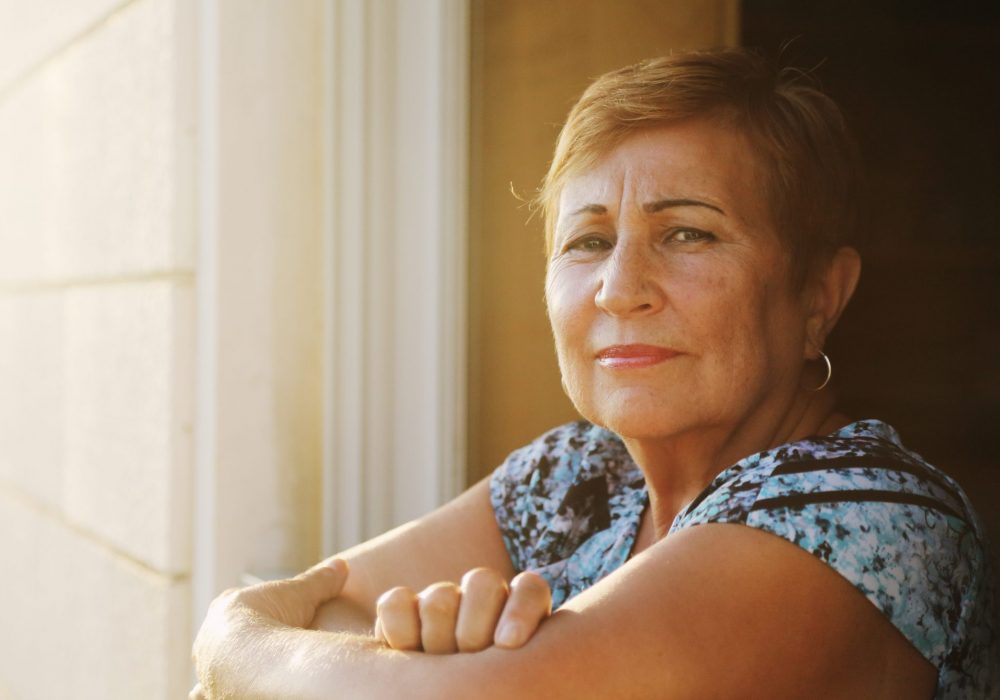Despite the fact that women have been going through menopause for centuries, many women today will still be taken by surprise when strange symptoms begin to emerge. Menopause is a natural biological process and has therefore been happening since the beginning of human history. It is the time in a woman’s life that indicates the end of the menstrual cycles. And these odd changes in your body can certainly wreak havoc if you are not prepared or ready to see them through. Here at CNA Primary Care, we find solutions for women who struggle with this transition period.
Symptoms of Menopause are Different for Everyone
One of the main issues with alleviating menopause symptoms is the fact that every woman is different: her reaction to the process is different, her symptoms are different, her age is different. Therefore, there is a lot of gray areas and it’s not always black and white when it comes to finding the right solution for you. Nevertheless, a properly trained physician will look into your medical history and specific circumstances and find a way to facilitate this natural process without it disrupting your whole life.
So what are some of the common symptoms?
Like we stated above, the symptoms vary from person to person, but there are some common telltale signs that your body is going through menopause. For many women, irregular periods are one of the first of these signs. Your period might skip a month then return, then slowly taper off. Again, there is no exact way that this happens and it varies from woman to woman.
Some Common Signs of Menopause
Here are some of the common signs that might be experienced months or years before menopause actually begins:
- You have reached the age of about 40-51
- Vaginal dryness
- Hot flashes
- Chills
- Night sweats
- Sleep problems
- Mood changes
- Weight gain and slow metabolism
- Thinning hair
- Loss of breast fullness
How Does Hormone Therapy Help?
Not all women have to consult a doctor during this time of their cycle, but for others, the changes are enough to disrupt and cause more than inconveniences in your daily life. Hormone treatment is a prescribed way to help alleviate some of the symptoms of menopause including the dreaded hot flashes and the vaginal dryness. During the process of menopause, your ovaries make very low levels of the hormones estrogen and progesterone. The therapy basically replaces or balances the hormone levels your body no longer makes by replacing it with artificial hormones.
At the same time, some studies have suggested that Hormone Replacement Therapies can assist with other health issues as well including improvement of muscle function, reducing the risk of failure and heart attacks, and preventing skin aging.
What Are the Different Types of Hormone Therapies Available
Women have a variety of options when it comes to how they want to approach their hormone therapy treatments.
Topical. Topical hormone therapy is a low dose of estrogen cream applied directly to the vagina. This can alleviate the common vaginal dryness that often occurs in premenopausal and menopausal women. It can also be used as a vaginal ring, patch, or gel.
Hormone Replacement Therapy. Taking hormones orally is different from topical solutions. Topical treatments might be reserved for more minor symptoms and very short periods of time. Hormone Replacement Therapy can be done through hormone pellet therapy or using bioidentical hormones. These are taken and prescribed by your physician and usually used in short doses and taken for a short period of time.
Some of the most common types of hormone therapies include:
- Estrogen only
- Cyclical or sequential HRT
- Continuous HRT
- Local estrogen
Is Hormone Replacement Therapy Safe For Everybody?
Like every kind of medicine and treatment, HRT might have some common side effects. Most of them are relatively minor and will dissipate. Some of the common side effects might include things like nausea, acne, bloating, indigestion, and headaches. It is important to let your doctor know if you experience any of these side effects while taking HRT. The research and advancement into this kind of therapy have progressed considerably in the last decades. It’s why today most physicians consider HRT quite safe for everyone, even people with some risk factors. That is, of course, if the symptoms warrant hormone therapy. HRT is very effective for
- More severe hot flashes and vaginal dryness
- For women up to the age of 59
- Within 10 years of menopause
- Low dosage for low periods of time
Staying Healthy Through Menopause
In addition to Hormone Replacement Therapy, your primary care physician here at CNA Adult Primary Care can help guide you through other lifestyle changes that can improve your symptoms and ensure you’re able to transition into the next phase of your life with the least amount of discomfort. Staying healthy and active is a big part of maintaining bodily balance through menopause. This includes lifestyle choices that involve:
- Maintaining a healthy and balanced diet
- Exercise regimen
- Plenty of sleep
- Avoiding high stressors
Be Healthy and Happy Through The Transition
Here at CNA Adult Primary Care, we want to ensure that you go through this natural transition in a successful and healthy way. Come see us today if you think you might benefit from Hormone Replacement Therapy for your menopause symptoms.
The above is just general information about HRT and does not take the place of a physician’s consultation, nor is it medical advice.
